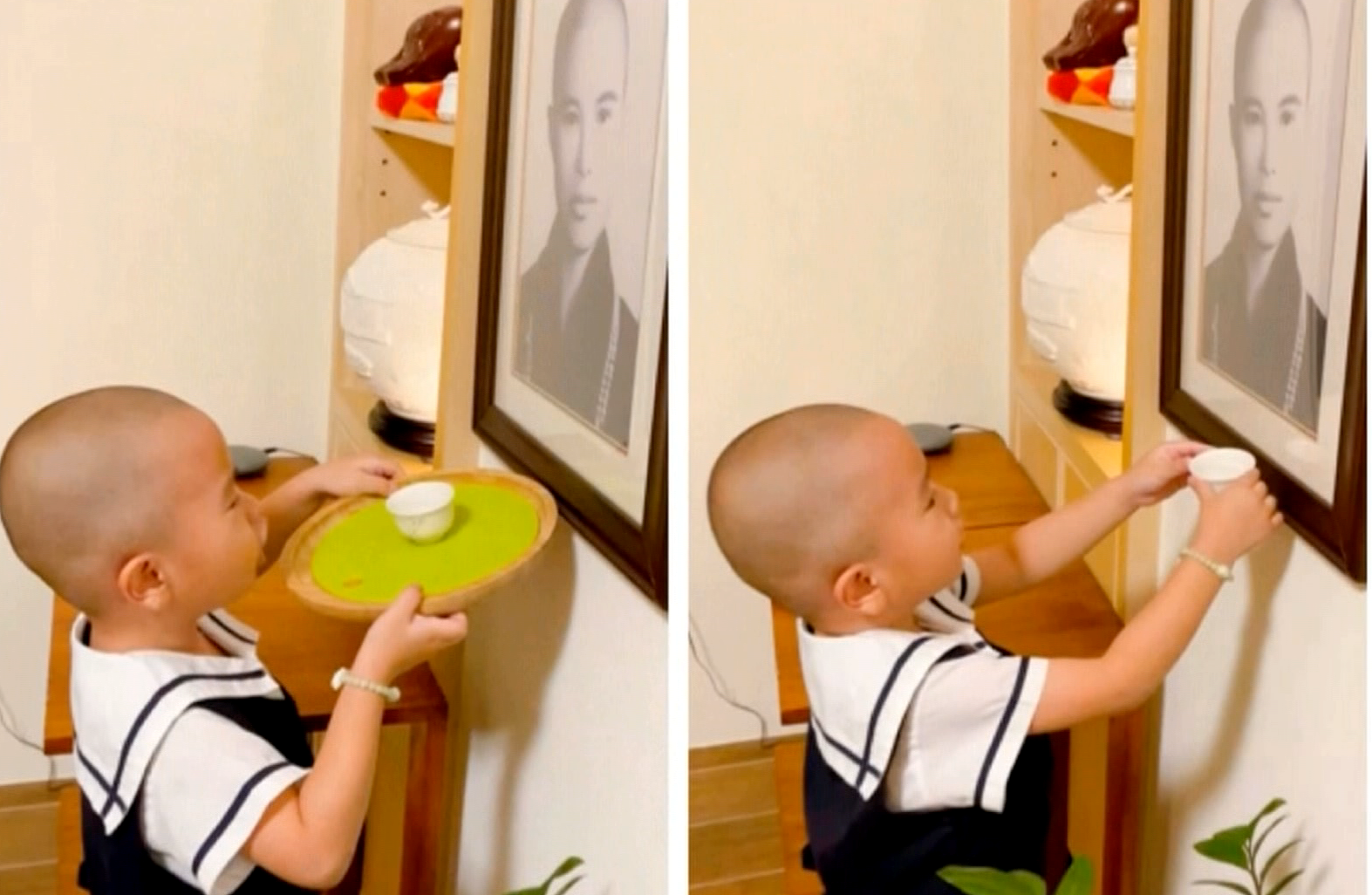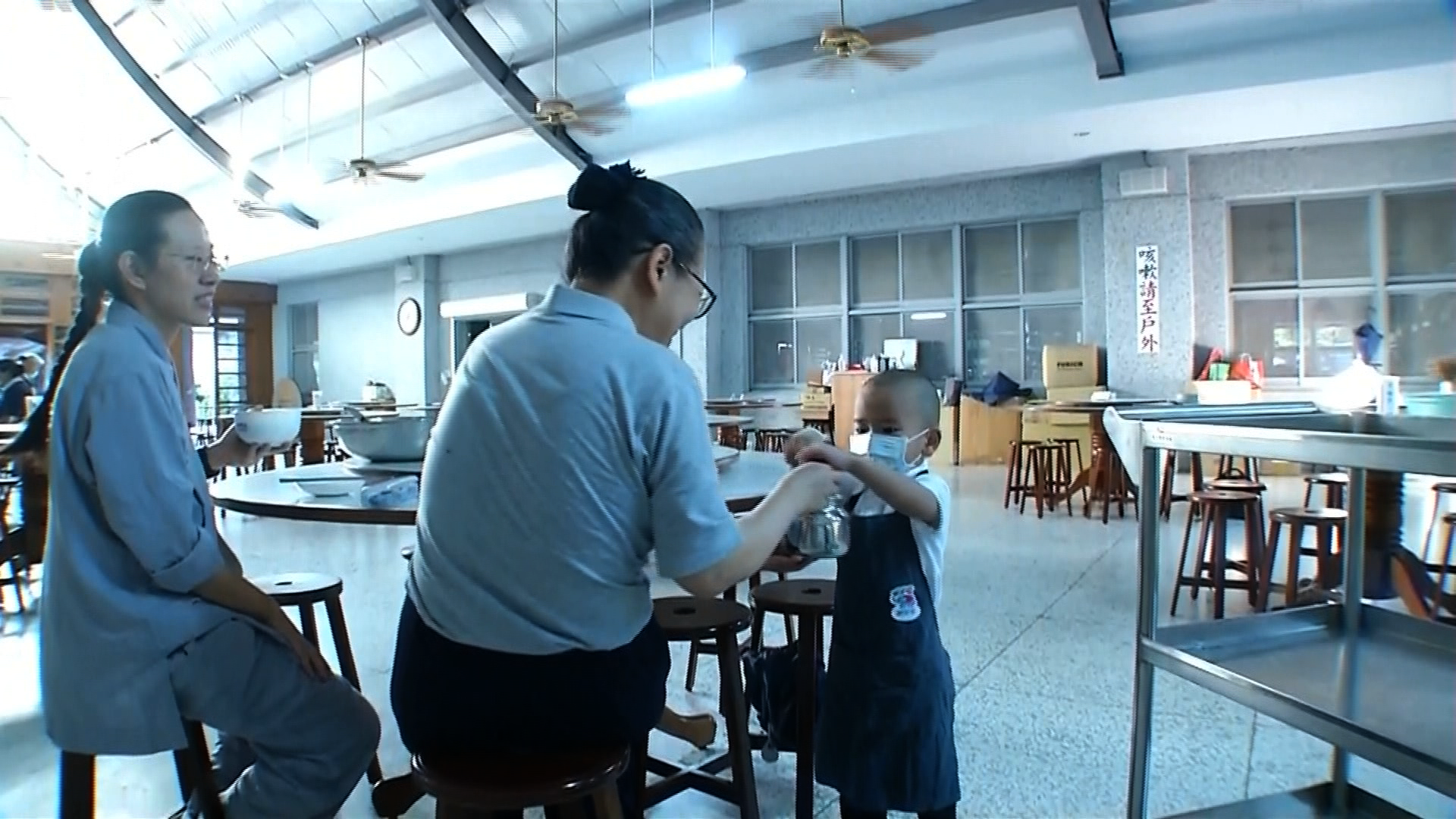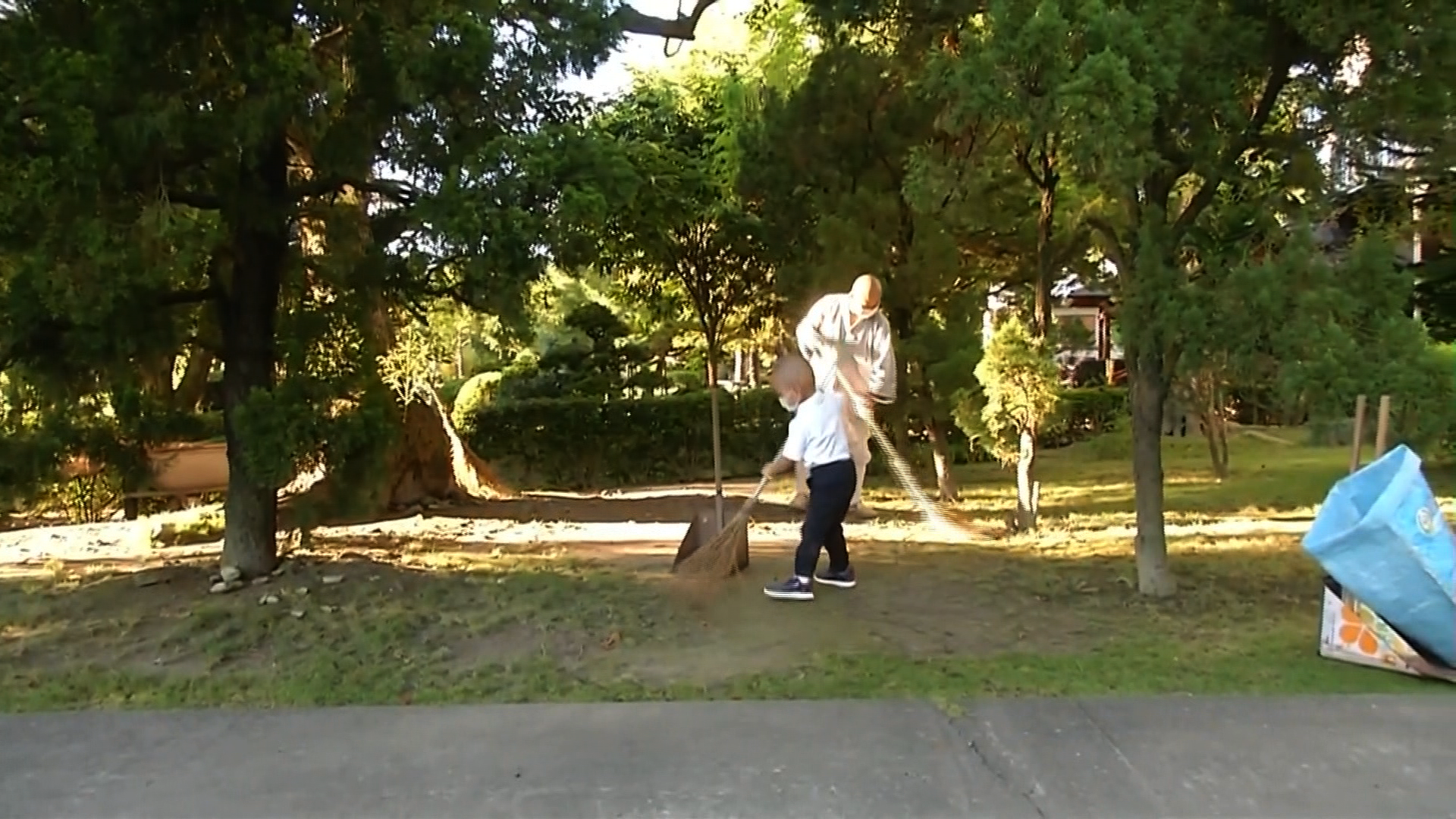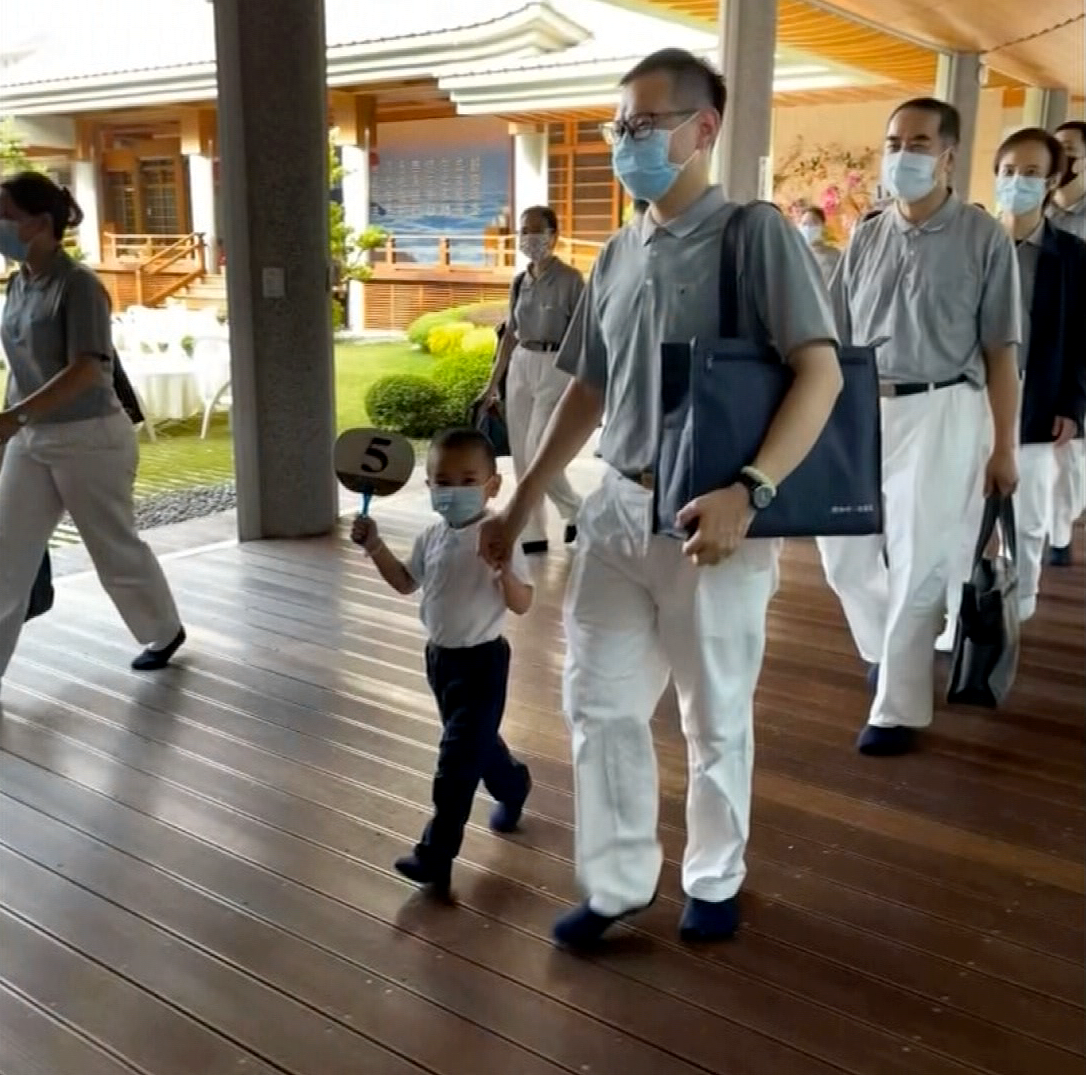Life Wisdom: Being Diligent from One Life to the Next

We could hear the loud and high-pitched voice of the little child, Yinian, who’s only three years old. His voice is clear and crisp. Every morning, as I walk into the dining hall, I’ll see, in a distance, a small child donning a white shirt and navy-blue pants. His mother will hold his hand, and he’ll look for me at the other side of the hallway. When he sees me, he’ll get ready and puts his palms together. It’s truly adorable! When I (approach near) he will make a prostration, and reach his hand to hold onto mine.
He is always very happy. He learns from adults about how to cultivate himself. He does morning and evening services at home, and lately, he comes in during morning service. He has a good manner in coming in (the hall) and finds a spot to sit for himself. He is mindful and will keep on being mindful. I look forward to his mindful (cultivation).


During my (Morning Volunteer Assembly,) I heard that he also takes notes. So, I kept wondering, “which volunteer was he in his previous life?” In his consciousness, in his memory, I believe he was very diligent in his past life. Perhaps he also used to attend morning service at the Abode in his past life, or he might have been a cultivator who lived at the Abode. His memory is very clear and he can comprehend things quickly. We typically employ our first six consciousnesses. Every day, we use our five sense organs and five consciousnesses. When we act, we rely on our eyes to see, and our ears to hear; our life depends on our five sense organs. Most importantly, the consciousness takes them all in.
What he hears, it’s taken from his ear organ to his heart. He learns by observing the conduct of cultivators, using his eyes, its corresponding consciousness, and the sixth consciousness. What he sees will be stored in his memory. In this life, as he observes, and follows step by step, he’ll be able to do it, too. Let us use our consciousness and learn mindfully without ever stopping. Such a child is very adorable. We have to remember that, in cultivation, we (watch over) our five senses, use our sixth consciousness to discern right from wrong, be very mindful in (learning) things that are right, use our seventh consciousness to think, and store what’s in our eighth consciousness well. We need to take what we see and hear to our heartsand remember it.

This is why I often tell people to be very mindful. Now that you hear me talk about this child, with your sixth consciousness, you know that I’m talking about a child. You have to remember: “We see this child every day” “and Master has talked about him learning” “diligently. We understand this clearly.” When we recall this, it has become our memory. When you think of this child, hear his voice, you’ll recall that I’ve praised him. Such memory is in our minds. When someone mentions him, we can quickly put our memory together and know that “that’s the child Master has mentioned.” We can put together that child’s past life and his current behavior. This takes place in the consciousness. We have to be very mindful of this.
That’s right, be mindful in remembering (the Dharma). The child is so young. His Buddha nature is no less than mine. He is very pure and untainted. As we’re cultivating ourselves now we are to return to our pure innate nature. For a long time, our innate nature has been heavily covered by ignorance. In cultivating ourselves now, we are to remove those layers and layers of filth. Even if we have to be like that child holding a large broom, despite it being long, he still holds the broom and uses it to sweep the floor. Now that we’ve aspired to cultivate spiritually, I’m now making a lot of effort to tell people that everyone must believe that they have the Buddha nature. To return to our Buddha nature, we must start with spiritual cultivation. To cultivate ourselves, we need to nurture love.

Nurturing love starts with protecting lives and paying importance to life. This is why I often talk about gratitude, respect, and the love of life. Let us be grateful to the land. Let us be grateful to the greater environment. Let us be grateful to everyone. Whatever we do, we need to harbor gratitude. In seeing people, we need to respect them as everyone has the Buddha nature. When we express gratitude and respect, that is inclusive Great Love.
See that black slug. It’s a life. A child sees it but he does not disturb it, instead, he lets it crawl freely to wherever it wants to go. Such is his pure innate nature. Volunteers, it’s not hard to emulate the Buddha. It’s as simple as that.








 Sitemap
Sitemap